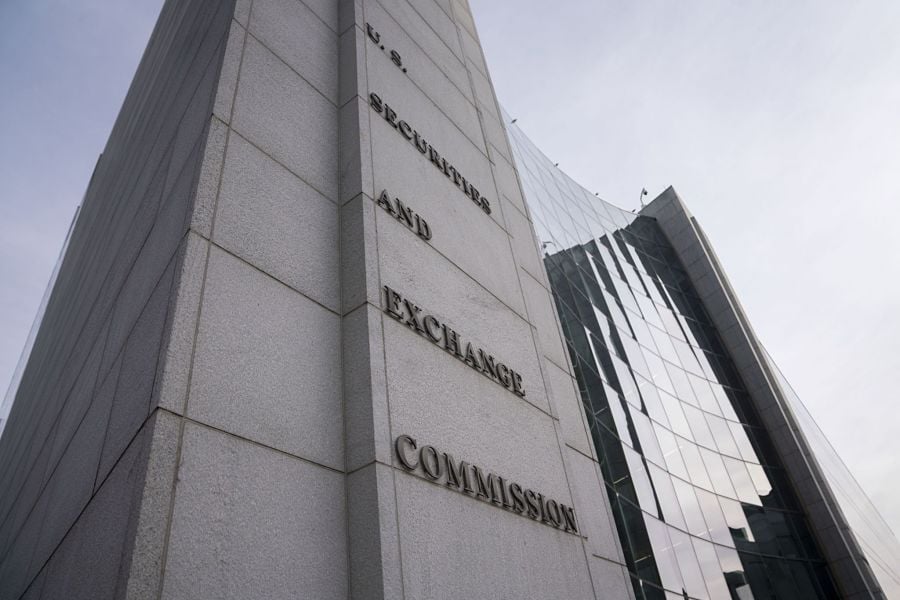

Major asset management firms are pressing the Securities and Exchange Commission to allow for more widespread use of digital delivery of investment paperwork.
In a Sept. 8 letter to the agency obtained by InvestmentNews, Fidelity Investments, Charles Schwab Corp. and BlackRock Inc. called on the SEC to make electronic delivery the default option for sending regulatory documents — such as account and confirmation statements, mutual fund prospectuses and annual and semi-annual reports — to investors.
“We believe that the SEC’s current framework that focuses on paper delivery as the primary method of transmission should be replaced with an approach that establishes the first means of communication as digital, with paper as an alternative, rather than the other way around,” the letter states.
The asset managers are asking the SEC to enable financial firms to use an investor’s email address or smartphone number as the primary delivery address for regulatory documents.
A change in the SEC’s interpretive guidance and regulations to allow for digital-first investor and shareholder communication would align with growing investor use of the internet, smartphones and tablets to manage their finances, the firms said.
“Fidelity believes that electronic delivery should be the default means of communication and disclosure,” Fidelity spokesperson Vin Loporchio said in a statement. “The data is clear that investors strongly prefer engaging with their financial firm digitally, and e-Delivery empowers investors by providing information in the most timely, effective and accessible manner.”
An SEC spokesperson declined to comment.
The SEC has allowed temporary regulatory relief for electronic delivery during the coronavirus pandemic. The agency could be inclined to go further.
“I do not believe that we should override any expressed delivery preference, but we should consider guidance that treats physical and electronic delivery as equals rather than measuring delivery against a paper standard,” Dalia Blass, director of the SEC Division of Investment Management, said in a July 28 speech.
The effort to push the SEC toward easing restrictions on digital communication comes a few months after the Department of Labor promulgated a final rule allowing retirement plan administrators to deliver retirement account information electronically by default.
Although the DOL rule was widely endorsed by the financial industry, it drew opposition from the Pension Rights Center. The organization warned that the measure would allow retirement plans simply to notify participants that information is available on a website and then leave it to them to dig it out.
Karen Friedman, executive vice president of the Pension Rights Center, also is wary of industry advocacy for a similar SEC policy.
“This is another attempt by financial institutions to push through an electronic disclosure regime that will make it harder for consumers to get the important financial information to which they are legally entitled,” Friedman said in a statement. “Studies show that consumers and investors of all ages prefer to receive financial and legal documents on paper, and there is no reason to change the system that is working for consumers.”
Fidelity, Schwab and BlackRock outlined five investor protection steps, including giving investors ample notice of the switch to electronic delivery, honoring their requests to opt out, providing an easy means to change their contact information, presenting documents in an easy-to-read format and establishing safeguards to respond to electronic delivery failures.

Canadian stocks are on a roll in 2025 as the country prepares to name a new Prime Minister.

Two C-level leaders reveal the new time-saving tools they've implemented and what advisors are doing with their newly freed-up hours.

The RIA led by Merrill Lynch veteran John Thiel is helping its advisors take part in the growing trend toward fee-based annuities.

Driven by robust transaction activity amid market turbulence and increased focus on billion-dollar plus targets, Echelon Partners expects another all-time high in 2025.

The looming threat of federal funding cuts to state and local governments has lawmakers weighing a levy that was phased out in 1981.
RIAs face rising regulatory pressure in 2025. Forward-looking firms are responding with embedded technology, not more paperwork.
As inheritances are set to reshape client portfolios and next-gen heirs demand digital-first experiences, firms are retooling their wealth tech stacks and succession models in real time.
